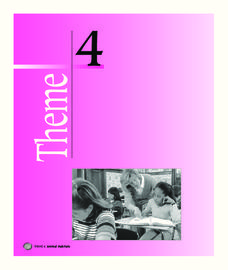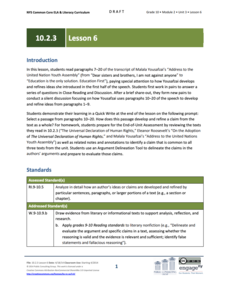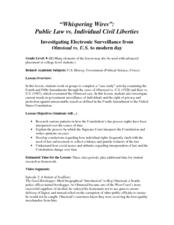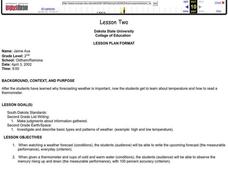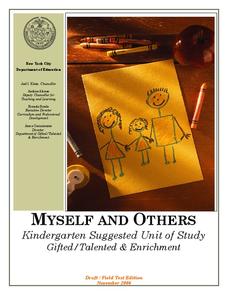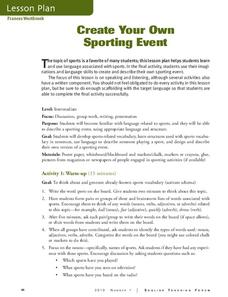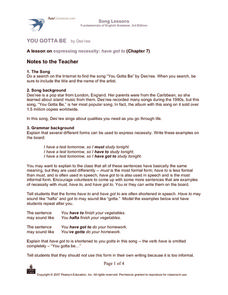EngageNY
Grade 9 ELA Module 2, Unit 3, Lesson 11
Who is to blame for Bernie Madoff's crime? Class members look for evidence Diana B. Henriques uses in The Wizard of Lies: Bernie Madoff and the Death of Trust to support her claims that we share the responsibility with Madoff.
K20 LEARN
Words Before Blows: Julius Caesar
Scholars examine how Brutus and Mark Antony employ ethos, pathos, and logos in their speeches to persuade the angry crowd in Act 3, scene 2 of William Shakespeare's tragedy, Julius Caesar. To set the stage, groups first identify the...
Spartan Guides
Infographics Lesson
An infographic is fantastic way for learners to illustrate their understanding of content, express themselves creatively, and teach others in a manner that is both engaging and informative. While originally designed for a lesson on...
EngageNY
Getting the Gist: Steve Jobs Commencement Address (Focus on Paragraphs 6-8, and connecting to Chapter 6)
As part of a unit study of Bud, Not Buddy, readers compare Buddy's list of rules to live by with those that Steve Jobs enumerates in his commencement address to Stanford's 2005 graduating class.
Houghton Mifflin Harcourt
Animal Habitats: English Language Development Lessons (Theme 4)
This activities in this packet, the second in the series of support materials for the Houghton Mifflin Harcourt thematic units on animal habitats, are designed specifically for English language learners.
EngageNY
Grade 10 ELA Module 2: Unit 3, Lesson 6
Let children be children. Scholars read in a speech by Malala Yousafzai how childhood is absent as children are forced to work and get married at a young age. Learners analyze part of the speech and discuss it in groups. After sharing...
EngageNY
Independent Reading Celebration and Read-Aloud of the Myth of Pygmalion
Let's party! Class members spend the first 25 minutes celebrating their independent reading efforts through an activity the teacher chooses. They then take a glimpse into the next unit of study, Pygmalion Myth Read-aloud and discus...
EngageNY
Finding Relevant Information and Asking Research Questions: The Big Thirst
Let's get to the gist. As scholars continue their study of Charles Fishman's The Big Thirst, they practice writing the gist of the text. Additionally, pupils add notes about the industrial uses of water to their researcher's...
Curated OER
"Whispering Wires": Public Law vs. Individual Civil Liberties
High school student love discussing controversial issues like those brought up in this fourth amendment case study. They examine the 1928 Olmstead vs. U.S. prohibition court case, applying the fourth amendment to determine whether...
Curated OER
Author's Day
Have your learners choose an author to study. One resource link gives a list of approved authors. Scholars read at least three works produced by that author and produce three separate book reports as well as a two-page author report....
Curated OER
Lawton: A Child of the Prairie
Students complete word study activities, read a story and write a descriptive paragraph about the setting of Goo Goo Avenue in Lawton 1901.
Curated OER
Concepts of Beauty Put Into Words
Studying haiku poetry with your English class? Delving into Japanese history with your world history class? Here is an authentic and creative way to explore Japanese culture more deeply. Pupils will compare and contrast two tea caddies...
Curated OER
Parts of the Plants that we Eat
First graders study plants and their parts to see what parts are edible. In this plant lesson students are assigned plant parts and they are to put them in the right category.
Curated OER
Word Roots 2: FIN, SED, FER Beginner Definitions Match 1
Consider this online matching activity to assist your class with vocabulary and word roots. Class members select a definition for each listed vocabulary word using a drop-down menu for each response. Learners receive immediate feedback,...
Curated OER
Lesson Two
Second graders, after assessing why forecasting weather is important, study about temperature and how to read a thermometer. They experiment being able to observe the mercury rising up and down when given a thermometer and cups of cold...
New York City Department of Education
Colonial America and The American Revolution
How did the founding of the American colonies lead to a revolution? Use the essential question and sample activities to guide learners through a series of history lessons. Additionally, the packet includes effective strategies to...
Curated OER
Vocabulary Building
Use primary text documents to learn word roots. Learners listen to a reading of the Declaration of Independence and highlight words they don't know. They compile these words and guess their meanings. They discuss roots, prefixes,...
Smithsonian Institution
Solomon G. Brown: Letter Writing
Personal correspondence in the form of letters is not as common as it once was. This resource presents an opportunity for you to introduce your class to letter writing and cover topics in social studies. Learners read a letter written in...
University Interscholastic League
English Lesson to Prepare for UIL Spelling and Vocabulary Contest
"i before e. . ." Spelling is easier if kids know the eight basic spelling rules contained in this resource packet.
New York City Department of Education
Myself and Others
Self reflection is an important skill to reinforce in our children, and it's especially helpful to help them realize who they are in the context of their environment. A collection of lessons about self image and community encourage...
US Institute of Peace
Defining Conflict
Conflict is everywhere—but is it avoidable? The first activity in a series of 15 peacebuilding lessons examines the nature of conflict at home, school, and across the world. Learners develop a definition of conflict through group work...
American English
Create Your Own Sporting Event
Combine vocabulary development and a study of verb tenses with a general introduction to sports. Class members get acquainted with the language associated with sports, and then complete a project to design and describe their own...
Azar Grammar
Song Lessons: You Gotta Be
Des'ree's song "You Gotta Be" is used to model for language learners the forms that can be used to express necessity (must, have to, have got to). After examining the grammar in the song, the attention switches to a discussion of the...
Santa Monica-Malibu Unified School District
Parts of Speech Pre-Test: The Building Blocks of Grammar
Help your learners get a good grasp on grammar. An insightful pre-test allows teachers to learn about their young writers' knowledge of the building blocks of grammar, so they can begin building a unit of study. It includes a...




